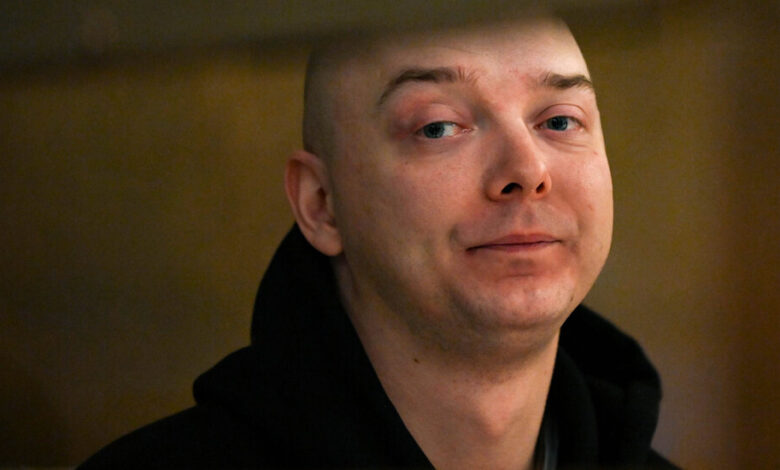Russia sentences a prominent journalist to 22 years in prison on treason charges.

A Russian court on Monday sentenced a former journalist to 22 years in a high-security prison on two counts of treason, the court said in a statement, signaling a new level of repression against the free press in Russia.
Ivan Safronov, 32, a former defense reporter for the Kommersant and Vedomosti newspapers, was arrested in July 2020 on his way to work in Moscow and accused of disclosing state secrets to representatives of foreign intelligence services.
Two months before his arrest, he had quit his job in the news media to become an adviser to the head of Russia’s space agency, Roscosmos, but the agency said the charges related to his work as a journalist.
In a highly secretive case, Russian prosecutors said Mr. Safronov had disclosed state secrets about Russian arms sales to a journalist who worked for the Czech Republic’s foreign intelligence arm, according to his lawyers. He was also accused of sharing unspecified secrets about Russia’s involvement in the war in Syria with a political scientist from Germany, according to Ivan Pavlov, his lawyer.
Mr. Safronov denied the allegations, saying that his reporting had relied only on information obtained from sources available to the public. He refused to enter a plea deal with the prosecution, his lawyer said.
His prosecution and the severity of the sentence sent chills through the Russian journalism community, which has been under heavy pressure since the government outlawed the publication of anything that deviates from the party line on Russia’s invasion of Ukraine.
Yevgeny Smirnov, another member of Mr. Safronov’s legal team, said the case had a “colossal cooling effect” on journalists in Russia, especially those covering defense and the military-industrial complex.
Mr. Smirnov said Mr. Safronov’s defense team would file an appeal.
Mr. Smirnov said the defense team believed that, apart from trying to send a message to Russian journalists, the government was seeking retribution against Mr. Safronov for revealing Russian plans to sell fighter jets to Egypt. Soon after Mr. Safronov published an article about the $2 billion deal, the United States threatened to impose sanctions on Cairo.
Mr. Smirnov said investigators had been collecting information on Mr. Safronov since 2014, but no criminal investigation was launched then. He said that Mr. Safronov’s emails, which formed the foundation of the charges against him, had been intercepted from 2015 to 2017, but that the wheels of the case against him had only started turning two years later.
“It feels like there was an order to lock up Ivan Safronov, and they started thinking how they could use what they got, what would be the charge,” he said.
Mr. Smirnov and Mr. Pavlov both fled Russia in 2021 after being involved in Mr. Safronov’s case. A third lawyer, Dmitri Talantov, was arrested in June and charged with spreading false information about the Russian army.
At the end of 2020, President Vladimir V. Putin said that Mr. Safronov’s case had nothing to do with his journalistic work and that no one could be charged with treason for using publicly available information.
“It cannot be allowed,” he said.
Pavel Chikov, a Russian human rights lawyer, said he could not find any precedent for such a harsh sentence on charges like Mr. Safronov’s, calling it a “savage, demonstratively cruel punishment, corresponding to the current state of Russia.”